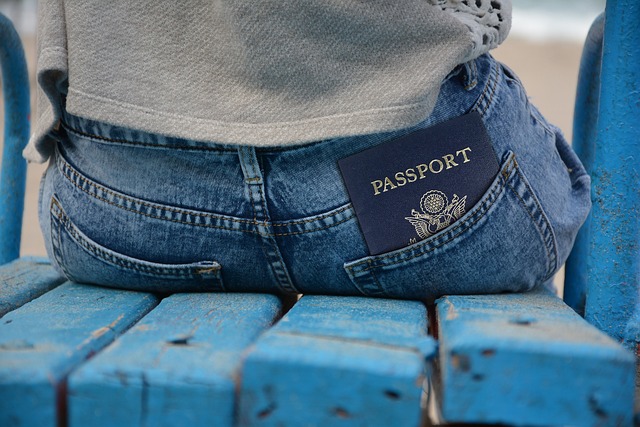Is My Passport Valid? Essential Travel Tips on Passport Validity and Expiration
Learn everything about passport validity and expiration requirements for international travel. This comprehensive guide answers common questions like how much time you need on your passport before travel, renewal tips, and crucial details for hassle-free trips.
Traveling internationally requires more than just booking flights and accommodations; ensuring your passport is valid is a critical step. Many travelers are unaware that some countries have specific passport validity requirements that can restrict travel. If you’ve ever wondered, “Is my passport valid for travel?” or “How much time do I need on my passport?” this article answers these common questions and provides a comprehensive look into passport requirements that every traveler should know.

Understanding Passport Validity for International Travel
1. Why Passport Validity Matters for International Travel
Passport validity is more than a formality. Immigration regulations in many countries require that your passport be valid beyond your intended stay, often by several months. These regulations aim to prevent travelers from being stranded in a foreign country with an expired passport. A valid passport serves as identification, proof of citizenship, and a travel authorization. Having sufficient validity on your passport helps avoid issues at border control and ensures your re-entry into your home country.
2. What Is the Standard Requirement for Passport Validity?
The rule varies by destination, but many countries mandate a minimum passport validity period for entry, often six months beyond your travel dates. This “six-month rule” ensures travelers have flexibility if their return date changes unexpectedly. However, it’s not a one-size-fits-all rule. Some countries may require only three months, while others might allow entry as long as the passport is valid for the duration of the stay. Checking the specific entry requirements for your destination country is crucial.
3. How to Check if Your Passport Is Valid for Travel
If you have an upcoming trip, the first step is to check the expiration date of your passport. Make sure it aligns with your intended travel dates and meets the validity requirements of the country you’re visiting. For those who travel frequently, renewing a passport several months before it expires can prevent last-minute delays.
Countries with Specific Passport Validity Requirements
Countries around the world have different passport validity requirements. Here’s a look at the guidelines for some popular destinations:
- United States: For entry into the U.S., your passport only needs to be valid for the duration of your stay if you’re a U.S. citizen. Foreign visitors, however, are subject to the six-month rule.
- European Union (Schengen Area): Many Schengen countries require that your passport is valid for at least three months beyond your intended departure date. However, a six-month validity rule is often advised for added safety.
- Asia (China, Japan, South Korea): Countries in Asia, such as China and South Korea, generally require at least six months of validity from the date of entry. Japan is more lenient, requiring only the duration of stay.
- Australia and New Zealand: Both countries mandate a minimum of three months’ validity from the date of departure.
Checking these requirements as early as possible will save you from unexpected issues. The embassies or consulates of your destination country often have the most accurate information, as passport validity requirements can change frequently.
Key Tips for Ensuring Passport Readiness
Renew Early: Don’t wait until the last minute. Renewing a passport up to a year before its expiration is a smart move if you travel frequently.

Understand the “Blank Pages” Requirement: Some countries require a certain number of blank pages in your passport for entry and exit stamps. Make sure your passport has enough blank pages, especially if you’re visiting multiple countries.
Emergency Passport Options: If you find yourself needing urgent passport services, some countries offer expedited passport renewal or temporary travel documents. Contact your local passport agency to understand these options.
Keep Photocopies or Digital Scans: Having a digital copy of your passport can help in the event it’s lost or stolen while you’re abroad.
These tips ensure that your passport is up to date, valid, and ready for international travel. In Part 2, we’ll cover what to do if your passport doesn’t meet a destination’s validity requirement, the process of renewing a passport, and additional tips for stress-free travel.
Having understood the importance of passport validity, you may wonder what to do if your passport doesn’t meet the requirements or needs renewal. Preparing well in advance can make a significant difference in how smooth or stressful your travel experience is. Here’s everything you need to know about renewing a passport, emergency travel documents, and specific details for families and minors.
What If My Passport Doesn’t Meet the Validity Requirements?
If your passport doesn’t meet the validity requirements for your destination, don’t worry—renewal is often straightforward, though the process can vary by country. Here’s a step-by-step guide on how to proceed:
1. Apply for Renewal ASAP: Many countries have online services to help expedite renewals. It’s best to begin the process at least three months before your intended travel date.
2. Choose Expedited Services if Necessary: If your travel date is approaching quickly, most passport agencies offer expedited processing for an additional fee. In urgent cases, it’s possible to receive a new passport in as little as 24 hours.
3. Temporary and Emergency Passport Options: Some countries offer emergency travel documents that allow you to travel if your passport is lost, stolen, or nearing expiration. However, these documents usually have limited validity and might not be accepted in all destinations. Confirm with the embassy if an emergency passport is appropriate for your travel.
Passport Renewal: Key Information and Tips
Renewing your passport requires specific documents, a passport photo, and a completed application form. Here’s what you’ll need:
1. Required Documents: Typically, you’ll need your current passport, an application form, a recent passport-size photo, and any required fees. Be sure to double-check the documentation, as incomplete applications can delay processing.
2. Passport Photos: Passport photo requirements are often strict. Make sure the photo meets all specifications, including background color, photo size, and no visible accessories that obscure your face.
3. Check Processing Times: During peak travel seasons, passport processing can take longer. Check the current processing times and apply early to avoid delays.
4. For Minors: Passport requirements for minors vary, and the renewal process often involves both parents or legal guardians. Minors’ passports typically have shorter validity (five years) than those for adults, so parents should monitor expiration dates closely.
5. Apply Online Where Possible: Some countries allow online passport renewals, which can save time and streamline the process. However, check if this service is available for your nationality and renewal type.
Traveling with Family: Special Considerations for Children’s Passports

If you’re traveling with family, be aware of specific requirements for children’s passports:
Shorter Validity Periods: Children’s passports typically expire after five years. Parents should account for this shorter validity when planning trips.
Permission from Both Parents: Many countries require both parents or legal guardians to consent when applying for a child’s passport. This process can be more time-consuming, so plan accordingly.
Renew Early for Family Trips: Renewing passports for the entire family well before departure ensures that no one’s travel is delayed by passport issues.
Frequently Asked Questions about Passport Validity
Q: Can I travel if my passport expires soon after I return home?
A: This depends on the entry requirements of your destination. Some countries will allow you to travel as long as your passport is valid during your stay, while others require a buffer period of three to six months beyond your return date.
Q: What if my passport is lost or stolen while traveling?
A: Report it immediately to the nearest embassy or consulate of your country. They can issue emergency travel documents to help you return home safely.
Q: Is there a way to extend my passport’s expiration date?
A: Passports cannot be extended. You will need to apply for a new one before your current passport expires.
Final Tips for Smooth Travel with a Valid Passport
Traveling internationally involves several layers of preparation, but keeping track of your passport’s validity will save you from unnecessary stress. Here are a few parting tips:
Set Reminders for Renewal: Schedule a reminder six to twelve months before your passport expires to review upcoming travel plans.
Keep Copies of Key Documents: Keeping a copy of your passport and important documents in your email or cloud storage can be a lifesaver if they’re lost.
Stay Informed on Entry Requirements: Requirements can change, so check with the embassy or consulate of your destination regularly, especially close to your departure.
By following these guidelines, you’ll be well-prepared, ensuring that your passport is valid and ready for any travel destination. Happy travels!

